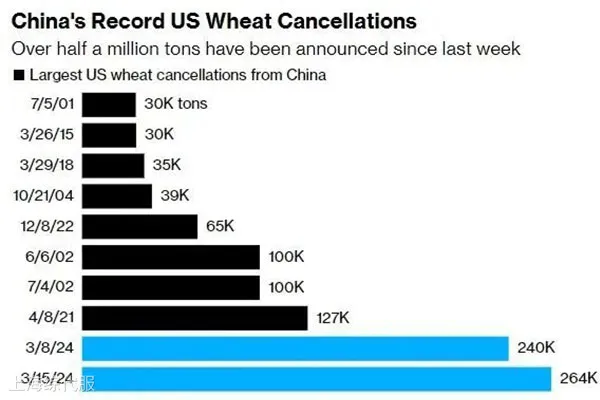China has repeatedly cancelled large-scale orders of wheat imports from the United States, including a mass order of 26,000 tons, with cumulative cancellation orders reaching the highest level since 1999.This series of cancellations has had a significant impact on U.S. wheat exports, and U.S. wheat exports for the fiscal year 2023/24 are expected to fall to the lowest level since 1971.

This large-scale order cancellation not only reveals the sensitivity of Chinese buyers to prices, but also reflects changes in the global trade pattern.Analysts believe that China may have obtained cheaper wheat supplies from other countries, such as Australia, and may also be a response to the U.S. government’s trade policy.
The decline in U.S. wheat exports is in sharp contrast to the growth in Brazil’s agricultural exports. Last year, Brazil replaced the U.S. as the world’s largest corn exporter. With the diversification of import sources in major markets such as China, the U.S. dominance in the global agricultural market is challenged.
The U.S. agriculture sector is concerned about this change, as agricultural exports are an important pillar of the U.S. economy. The trade war launched against China during the Trump administration has caused long-term damage to U.S. agriculture and changed the global agricultural production and trade pattern.
As the global trade environment continues to change, the U.S. agricultural sector is facing unprecedented challenges.The U.S. government and agricultural producers need to look for new strategies and markets to adapt to these changes.


 Follow customer service WeChat
Follow customer service WeChat